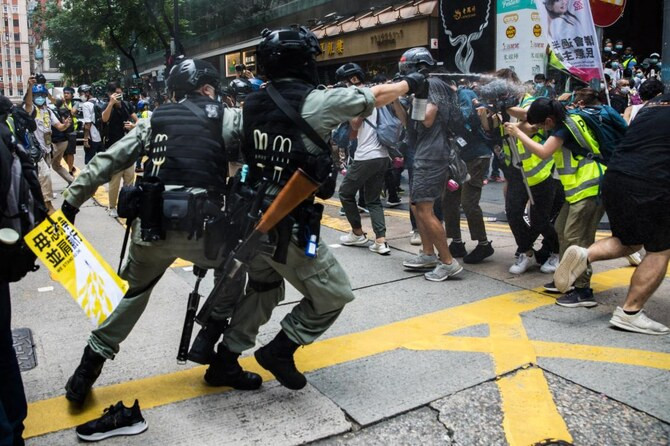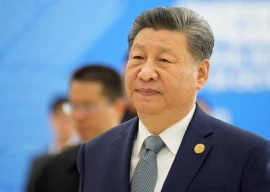
Press freedom in Hong Kong has reached a record low, according to an annual survey conducted by the Hong Kong Journalists Association (HKJA) and the Hong Kong Public
Opinion Research Institute (HKPORI). The Press Freedom Index, based on a zero-to-100 scale, measures the city’s media environment. This year, the score dropped to a historic low of 25, marking a decline of 0.7 points from last year and a significant 17-point fall since the survey’s launch in 2013.
The survey, which polled over 250 journalists and around 1,000 members of the public, highlights growing concerns over press freedom, largely due to the impact of Hong Kong’s national security laws. More than 90 percent of journalists cited the new security law, enacted in March, as having a major effect on press freedom. Known as Article 23, this law targets crimes such as espionage and foreign interference. It follows a similar law imposed by Beijing in 2020, which was introduced after pro-democracy protests in the city.
The prosecution of media tycoon Jimmy Lai, founder of the now-closed Apple Daily, under the 2020 security law, was seen as particularly damaging. Ninety-four percent of journalists surveyed cited his case as a key blow to media freedom in the city. Additionally, concerns were raised over the disappearance of South China Morning Post reporter Minnie Chan in Beijing. HKJA expressed deep concern about Chan, who had not been heard from since attending a security forum in Beijing last year.
While the public’s rating of press freedom remained relatively stable at 42.2, journalists are more acutely aware of the challenges they face. The less dramatic public reaction may be attributed to the comparatively lower level of discussion surrounding Article 23 compared to the 2020 security law.
In response, China’s foreign ministry defended the security laws, stating that they target only a small number of individuals who endanger national security, not law-abiding journalists. They claimed that press freedom in Hong Kong has been better safeguarded under these laws.
The survey’s release comes shortly after HKJA’s newly elected chairperson, Selina Cheng, was dismissed by the Wall Street Journal. While the newspaper’s parent company, Dow Jones, did not comment on Cheng’s case, they reaffirmed their commitment to advocating for press freedom.


1725443747-0/Untitled-design-(5)1725443747-0-165x106.webp)






1731570357-0/elon-musk-(1)1731570357-0-270x192.webp)







COMMENTS
Comments are moderated and generally will be posted if they are on-topic and not abusive.
For more information, please see our Comments FAQ